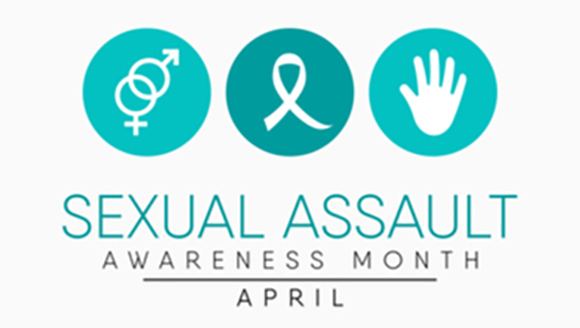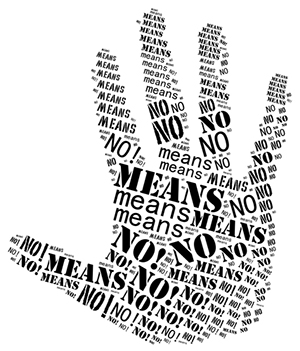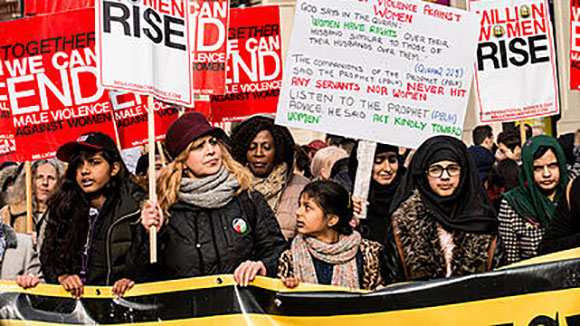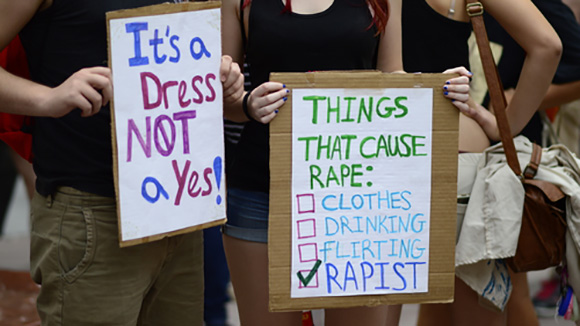April is Sexual Assault Awareness Month (SAAM) and here at Coastline College, we want to spread awareness and share tips on how to stop sexual assault.

Do you know the definition of consent? Consent means agreement to allow something to happen or agreement to do something.
Saying “yes” to a cup of tea is giving consent. Saying “yes” to watching a movie is giving consent. Saying “yes” to sexual advances is giving consent. But.. before engaging in any contact, physical or sexual, you should always ask for consent.
Every 73 seconds, an American is sexually assaulted. You can help make a difference by knowing the signs of sexual assault and making an effort to stop it.
What is Sexual Assault?
Sexual assault is any type of sexual activity or contact (even a slight touch) that you do not give your consent to. Sexual assault can happen to anyone regardless of gender or race.
Sexual Assault can include:
Not all sexual assault is physical. It can also include unwanted verbal or visual actions. These actions can include:

History of Sexual Assault Awareness Month
April 2021 marks the 20th anniversary of Sexual Assault Awareness Month. While officially recognized in 2001, sexual assault awareness has been an issue women’s rights groups have been bringing attention to since the Civil Rights Era of the ’40s and ’50s. Through the decades, women’s rights groups called for legislature and funding to support survivors.
A significant breakthrough for assault victims came in 1993 when the Violence Against Women Act (VAMA) was passed. This act provided $1.6 billion toward the investigation and prosecution of violent crimes against women. It helped create responses to domestic violence, sexual assault, dating violence, and stalking.
In 2000, the newly launched National Sexual Violence Resource Center polled sexual violence coalitions on their preferred color, symbol, and month for sexual assault awareness activities. The teal ribbon was decided on as a symbol for sexual assault awareness, and SAAM was created.
Risk Reduction Tips
These tips may be able to help reduce acts of sexual assault.

Tips on How To Help
Coastline Title IX Director Leighia Fleming shared advice on how to help someone if they come to you for help.
“Everyone is going to deal with it differently,” said Director Fleming.
Learn more about Student Services @ Coastline
You Are Not Alone
Coastline College has a duty to it’s students, faculty, and staff to create a safe environment. Coastline offers resources and programs to help stop sexual assault including remote services, programs, classes, and opportunities to connect which you can find on the Title IX page.
In a digital world, it is more important now more than ever to maintain a safe digital space. If you are or know someone who is a victim of sexual assault, there are numerous resources to get help. Keep in mind it is not your fault and you are not alone.

You can reach out to Coastline College if you need to report an incident that happened on campus or in an online class.
Report an Incident to Coastline through Maxient Reporting Service
There are also off-campus resources available:
Domestic Violence Assistance Programs
Website: Domestic Violence Assistance Programs, Orange County
Sexual Assault Victim Services/Rape Crisis
Website: Sexual Assault Victim Services/Rape Crisis, Orange County
Phone: (24-Hour Hotline) 714-957-2737 or 949-831-9110
Casa di la Familia
Website: Casa di la Familia
Phone: 714-667-5220
Mariposa Women & Family Center
Website: Mariposa Women & Family Center
Phone: 714-547-6494
Victim Referral Services
Website: Victim Referral Services (Orange County Sherrif's Department)
This year we hope you spread awareness to help stop sexual assault. Remember, always ask for consent, even if you think the answer is yes.